Sony A80L vs LG C3: which step-down OLED TV should you buy?
Two of the best step-down TVs face off
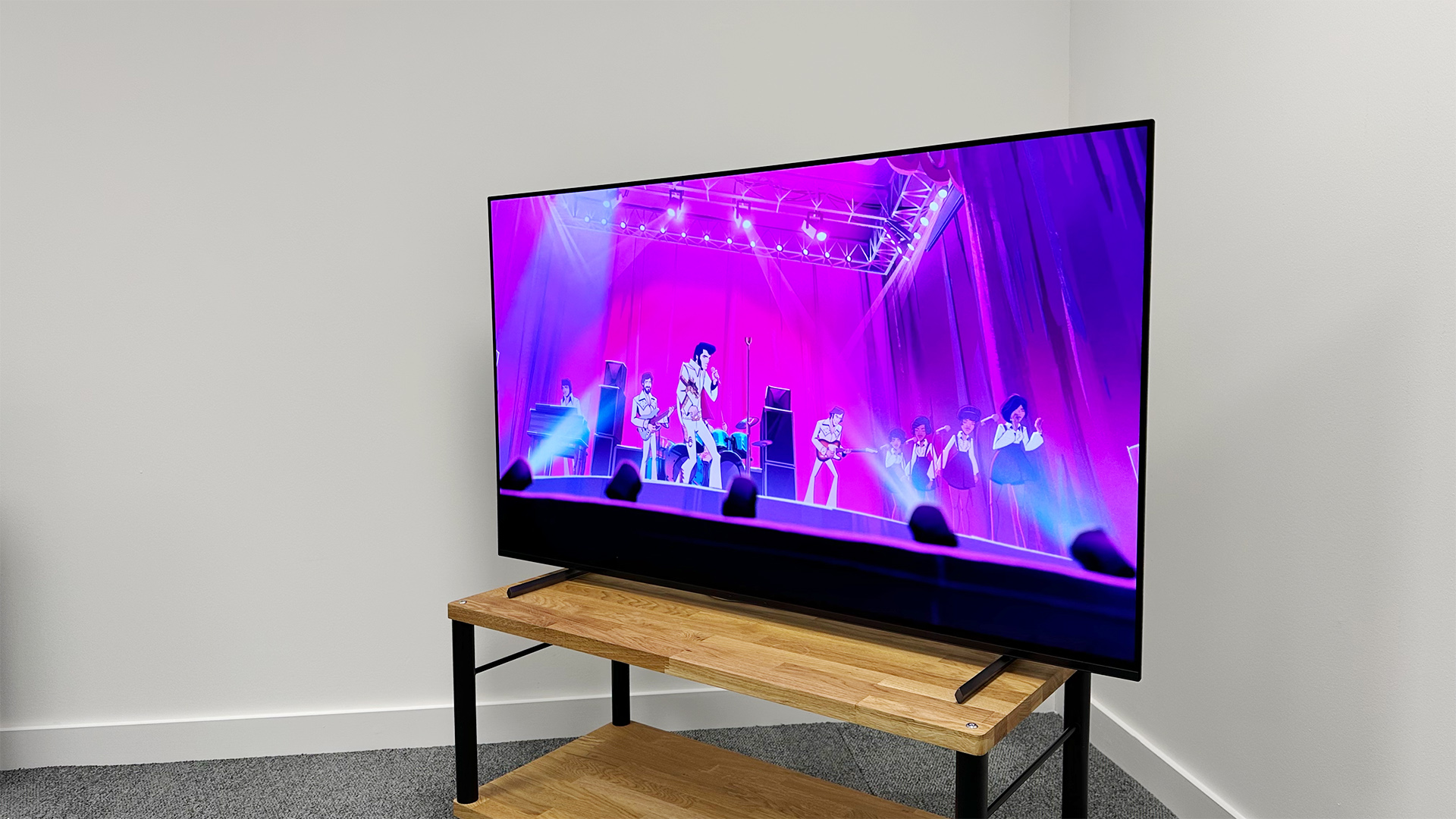
Resolution: 4K
HDR formats: HLG, HDR10, Dolby Vision
Operating system: Google TV
HDMI inputs: 4
Sony's mid-ranger is a triumph. Picture quality has come on leaps and bounds, audio is placed with pin-point accuracy, and it offers new gaming features that close the gap between it and market leader LG. The A80L isn't cheap, but it is a lot of TV for the money.
For
- Sharp, detailed, dynamic…
- …but subtle and authentic
- Atmospheric sound
Against
- Sound could be bassier
- SDR lacks shadow detail
- Only two HDMI 2.1 sockets
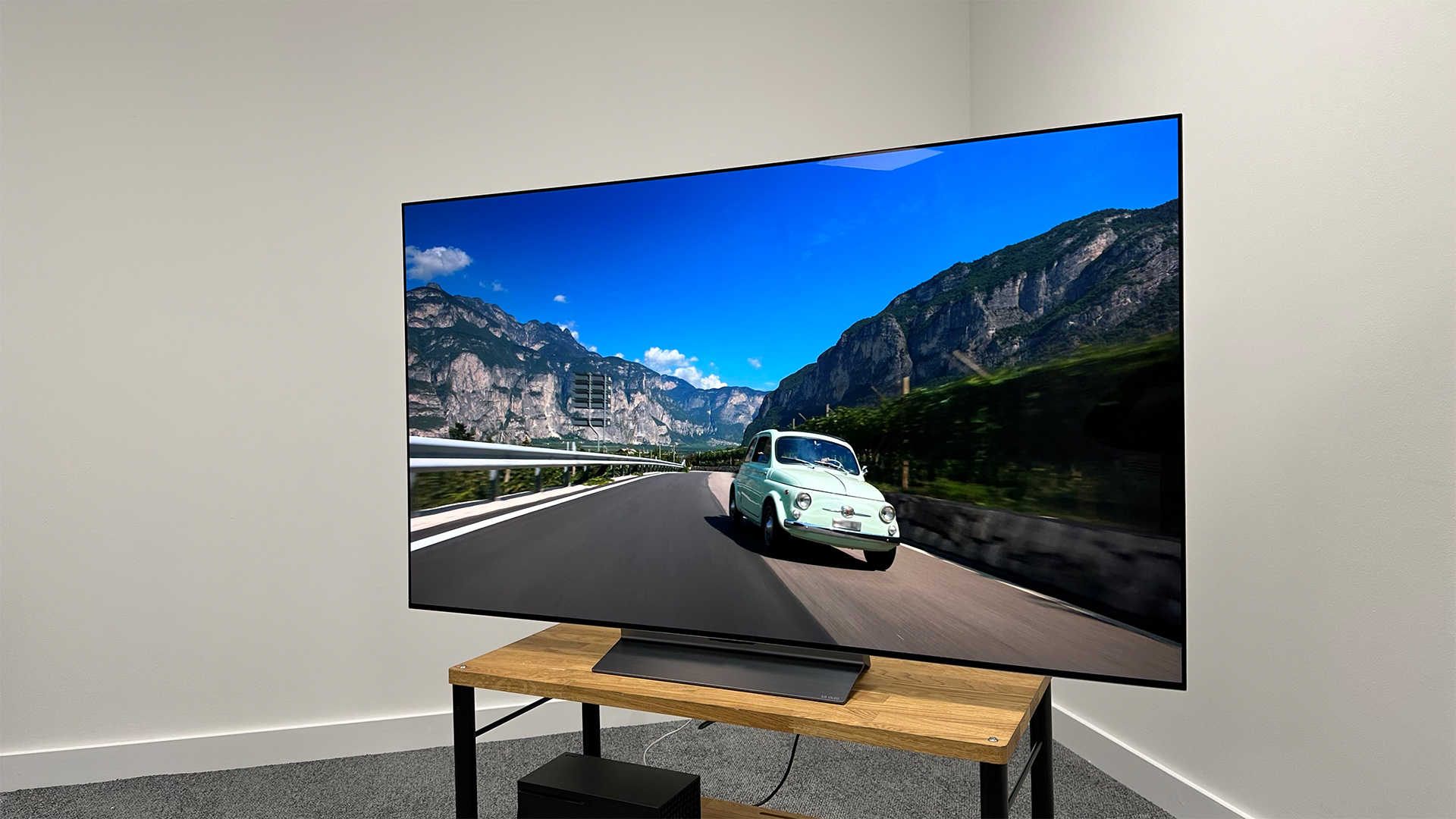
Resolution: 4K
HDR formats: HLG, HDR10, Dolby Vision
Operating system: webOS 23
HDMI inputs: 4
While still a very good TV, the C3 can't quite match up to its Sony rival in terms of picture quality. And for sound? It gets a bit of a drubbing. It's still top of the tree when it comes to gaming features, but anyone more focused on watching than playing will be better served by the Sony.
For
- Balanced, authentic picture
- Flawless gaming spec
- Very user-friendly
Against
- Minor upgrade on the C2
- Pricier than the C2
- Lacks the punch of the Sony
QD-OLED and MLA TVs might be dominating the headlines, but they're also prohibitively expensive, and that means that most of us looking for a premium TV experience will stick to buying standard OLED TVs for the time being.
Not that these TVs are cheap, of course. You'll still be dropping a pretty penny, and with the TV likely to have a significant role in your home setup for years to come, making the right decision is crucial.
That's where we come in. We've harnessed our decades of industry experience – and thorough testing process – to compare two of the best near-flagship TVs of 2023: the Sony A80L and LG C3. Their 2024 successors have since been announced – the Sony Bravia 8 and LG C4 – but the A80L and C3 remain on sale, and might even be cheaper than ever...
- Sony Bravia 8 vs A80L: what are the differences?
- LG C4 vs Sony Bravia 8: how do they differ?
Sony A80L vs LG C3: price
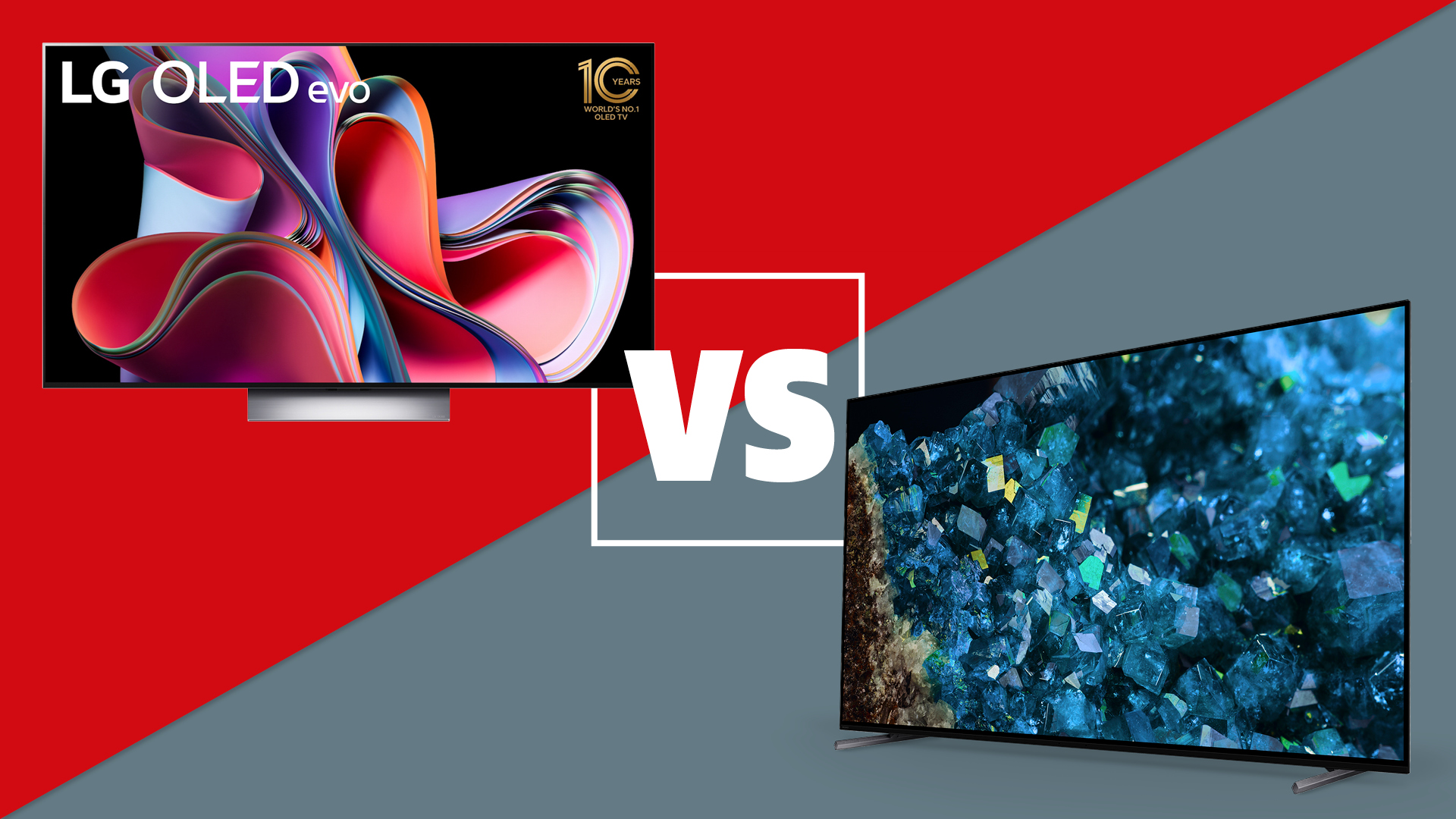
We've tested the 55-inch version of the Sony A80L (product code: Sony XR-55A80L), which launched at £2399 / $1900 (around AU$4485). The 55-inch C3 launched at £2100 / $1900 (around AU$TBC3925), so cheaper in the UK but the same price in the US.
That theme largely holds true as you move up the sizes, although the pricing of the 83-inch model is an anomaly, as you can see from this table:
| Size | Sony A80L | LG C3 |
|---|---|---|
| 42 | No such model | £1500 / $1400 / AU$TBC |
| 48 | No such model | £1600 / $1500 / AU$TBC |
| 55 | £2399 / $1900 / AU$TBC | £2100 / $1900 / AU$TBC |
| 65 | £2999 / $2600 / AU$TBC | £2900 / $2600 / AU$TBC |
| 77 | £4499 / $3600 / AU$TBC | £4000 / $3600 / AU$TBC |
| 83 | £5499 / $5500 / AU$TBC | £6500 / $5300 / AU$TBC |
However, these are launch prices, and now that the 2024 models have been announced, the 2023 models have dropped in price and are likely to do so again. The 55-inch A80L is currently discounted to £1299, while the same size C3 is currently £939.
** Winner: LG C3 **
Sony A80L vs LG C3: design

The A80L carries on the same minimalist design language of its predecessor, the A80K. The screen has a very thin bezel, and narrow feet that look like a pair of ice skates. You can position these feet wide or narrow – the former makes the TV more stable, but the latter means it'll fit on a narrower TV cabinet. They can also be fitted to raise the TV a little in order to fit in a soundbar.
The TV is very slim around the edges but does have a portlier mid section in order to house the drivers, processing innards and actuators for the in-screen sound system.
All in all, it's a good-looking set, but it's also a bit bland.
The C3 also looks practically identical to its predecessor, the Award-winning C2, but that's more of a positive. It has a startlingly slim build, narrow bezels and is also astonishingly lightweight for a large TV. It comes with a pedestal stand rather than feet, and that gives the set a usefully compact footprint. There's no way to raise the height of the set, though, so you might find it a little awkward to position a soundbar with it.
** Winner: LG C3 **
Sony A80L vs LG C3: features
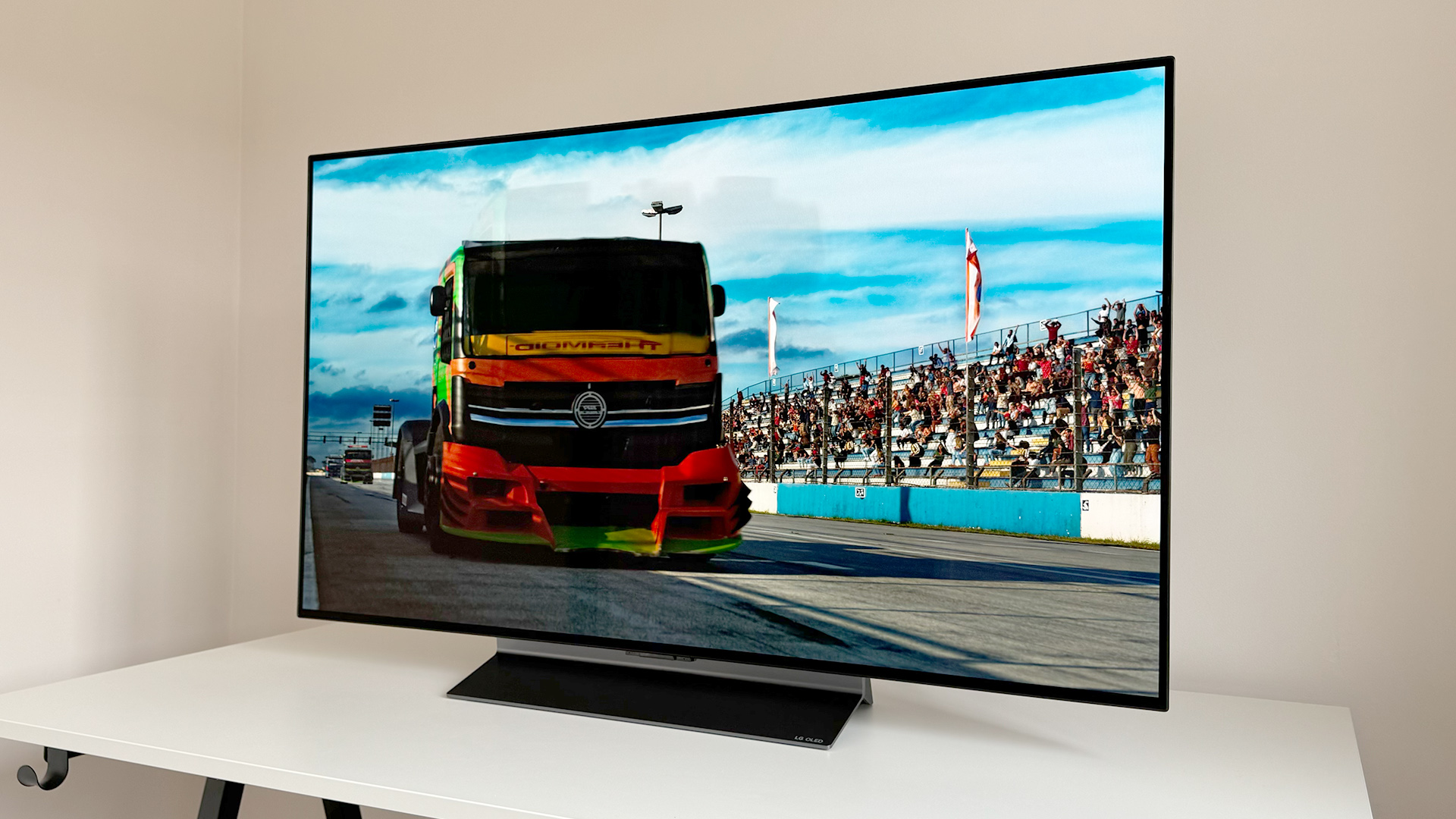
The Sony A80L and LG C3 are step-down models that lack the next-gen panel tech of their flagship siblings (the Sony A95L QD-OLED and LG G3 MLA OLED respectively), but they otherwise offer flagship-level feature sets, particularly in the case of the LG.
The A80L's Cognitive Processor XR has a new XR Clear Image feature, which should help upscale content to 4K more accurately. The LG C3 counters this with its new Alpha 9 Gen 6 processor, which brings some new picture processing features: AI Super Upscaling Pro upscales content to 4K while reducing noise but preserving intentional film grain; OLED Dynamic Tone Mapping Pro breaks the image down into 20,000 zones (rather than the 5000 of before) for separate HDR optimisation; Object Enhancer sharpens foreground characters and props; and HDR Expression Enhancer applies specific tone mapping to those foreground elements.
Both TVs have operating systems that deliver all major apps in the picture and sound formats they should, but LG's webOS 23 system is more responsive and intuitive, though the Google TV interface that the Sony uses is better than ever before and still improving.
The A80L does have one app-related ace up its sleeve in the form of Sony's own Bravia Core streaming service, which delivers movies in higher bit rates, and therefore higher quality, than you get from rivals such as Netflix, Prime Video, Disney+ and Apple TV.
In terms of HDR, both TVs support Dolby Vision, HDR10 and HLG, but not HDR10+. On the sound front, Dolby Atmos is a feature of both TVs.
On the gaming front, Sony has made some strides to try and catch up with its rivals, most obviously with the addition of a new Game Menu, which brings together all the gaming-specific features so you can switch them on or off and tweak them. These include motion blur, black depth, VRR, and the ability to add a crosshair to the centre of the screen. 4K/120Hz, VRR and ALLM are all supported, but the TV still has just two HDMI 2.1 sockets, one of which is also the eARC, and it lacks support for Dolby Vision gaming and HGiG.
The C3 is still the gaming king: not only does it have four HDMI 2.1 sockets with full support for the advanced 4K/120Hz, VRR and ALLM features of the Xbox Series X and PS5, it also supports Dolby Vision gaming up to the full 4K/120Hz, and has an HGiG mode for improved HDR tone mapping with many games. Its Game Optimiser menu is more comprehensive than Sony's Game Menu too, with quick access to the likes of HDR game settings. It also has some new features this year, most notably a new game audio sub-menu for adjusting game-specific sound settings.
And the C3 is available in a desk-friendly 42-inch model, making it a perfect monitor stand-in for gamers. The A80L only goes down to 55 inches.
Audio? The A80L has the upper hand. Its Acoustic Surface Audio+ sound system uses actuators placed behind the screen to make sound come from the exact part of the picture. The C3, meanwhile, offers a more standard 2.2-channel sound system, though its processor can up-mix all sound to 9.1.2 virtual channels, and the audio system can work in conjunction with one of LG's compatible soundbars.
** Winner: LG C3 **
Sony A80L vs LG C3: picture
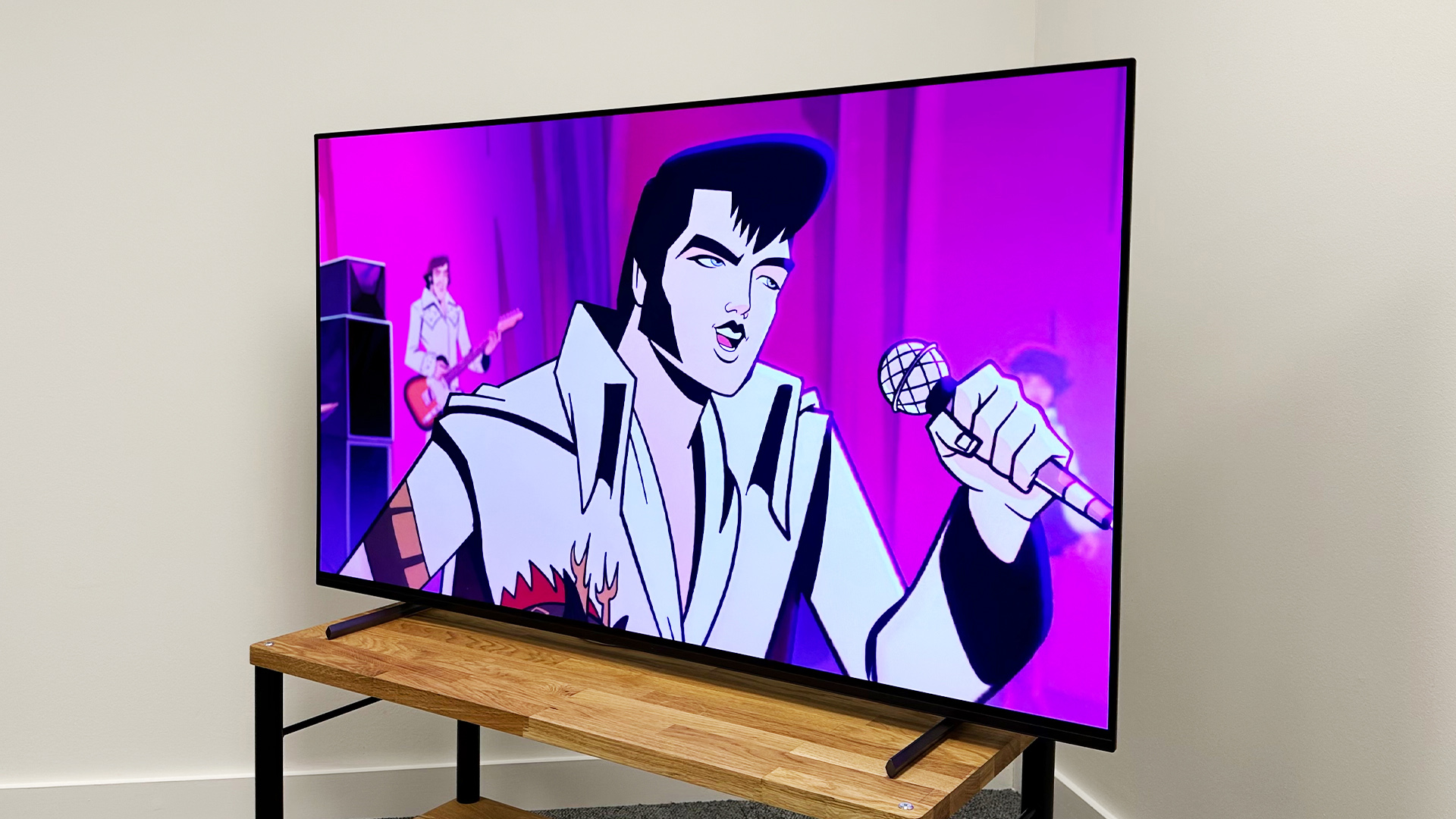
The C2 was a multi-Award winner, so we had high hopes for the C3's picture quality. And for the most part, it delivers. It takes a balanced approach to colours and contrast, with an image that's refined, subtle and detailed. There's good shadow detail throughout, and while low-light colours do appear a bit pale, it's not as pronounced as with the LG G3.
Basically, the C3 performs much like the C2 but with a little added pop and sharpness. Which is very good news indeed. But what's less good is how it fares next to the Sony A80L.
Simply put, the A80L is a noticeably more dynamic picture performer, with brighter highlights and stronger blacks (that still retain plenty of dark detail). Yet it doesn't lose its authenticity and subtlety, particularly in terms of colours. That makes it an all-gain, no-pain scenario.
Purists might argue that Sony's Dolby Vision Bright setting isn't 100 per cent authentic, but it's essentially Sony's equivalent of LG's Dolby Vision Cinema Home setting, and when it looks this impressive, who are we to quibble?
Switch both TVs to their theoretically most accurate modes, and the A80L is still the more striking and impactful. Brighter, better-defined highlights, less banding, better contrast and overall more three-dimensionality make it the clear winner in the picture stakes.
The LG does have a little extra shadow detail when playing SDR content, as well as very good colour accuracy and excellent upscaling in its own right, but it lacks the punch of the A80L.
** Winner: Sony A80L **
Sony A80L vs LG C3: sound
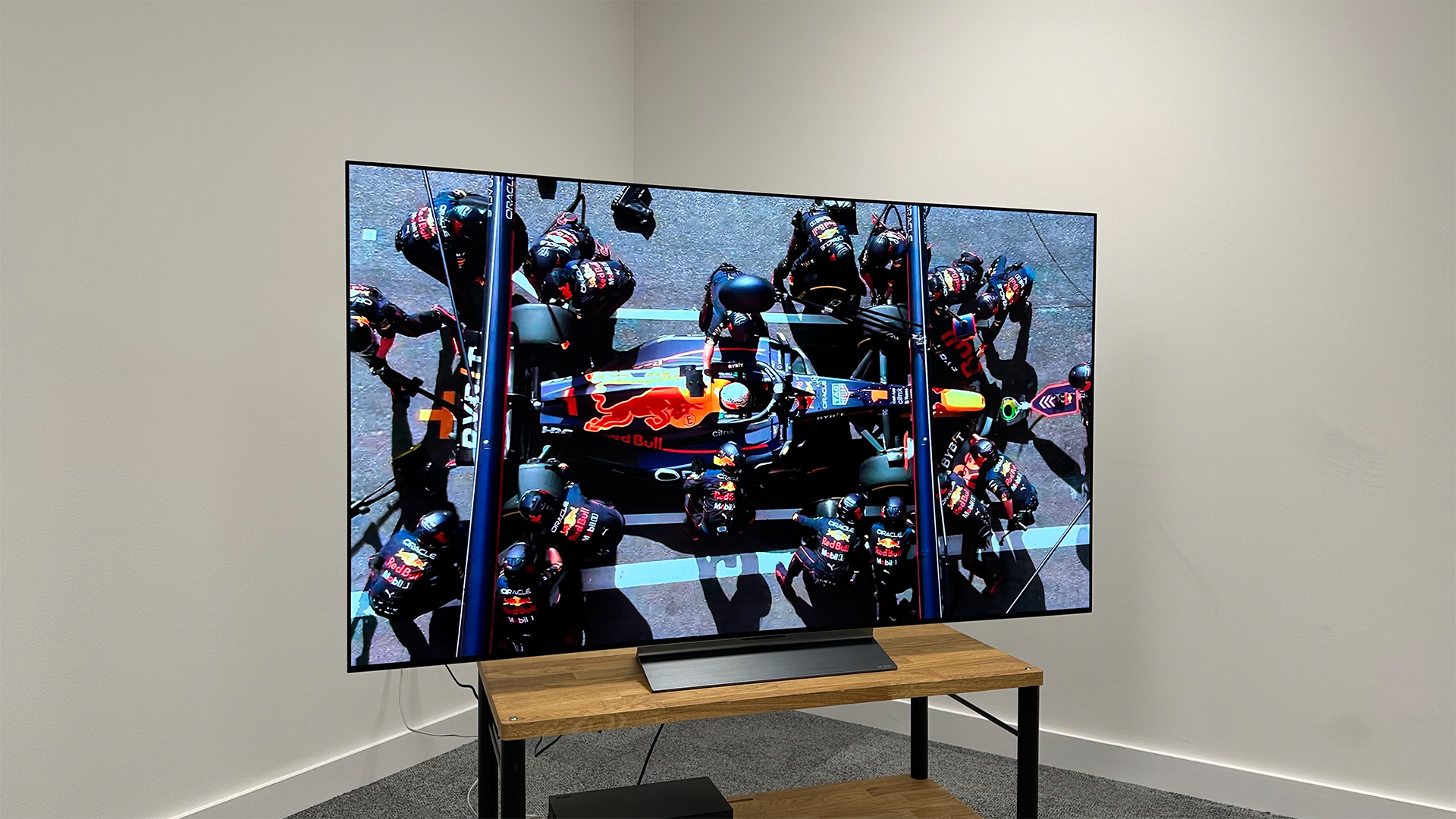
Unfortunately, the C3 is badly let down by its audio performance. It sounds just plain dull, even by the fairly low standards of TV sound. True, you can add some extra pep to the sound with the AI Sound Pro feature, but it's also bafflingly harsh, aggressive and thin to an extent that we find unlistenable. The Dolby Atmos setting, meanwhile, is open, spacious and weighty, but also far too prone to rattly distortion when provoked by deep bass.
Keep these settings switched off, and you'll at least get clarity and projection so you can make out what people are saying during your day-to-day TV viewing. It's the least bad option – not something we take any pride in saying.
The A80L, however, has a sonic ace up its sleeve: Sony's Acoustic Surface+ sound technology, which places three actuators behind the OLED panel that vibrate and create sound from the screen itself. This makes sound come from the corresponding part of the screen.
The effect is really noticeable at first, but once you're used to it it really enhances the viewing experience. Passing cars sound just like they're passing, for example, while dialogue seems to come straight from the characters' mouths.
It's a little light on bass depth, but it does manage to stay composed even at high volumes. Its soundstage is open and spacious, and projects a decent way into the room. We would still recommend a soundbar, but you'll get along ok without one.
** Winner: Sony A80L **
Sony A80L vs LG C3: verdict
The C3 is very much like the C2 it replaces. That means it's a very good TV, but the lack of meaningful upgrades has left the door open for rivals, and Sony has duly stepped through.
The A80L really wowed us – it's a big upgrade on its predecessor, despite having more or less the same panel hardware. Somehow, Sony has managed to squeeze out a noticeably better performance that beautifully balances spectacle and cinematic subtlety. It's an extremely accomplished TV that proves that standard OLED still has a huge amount to offer.
It is a shame that Sony is still behind LG in terms of gaming specs, but if you're anything other than a very hardcore gamer, the Sony A80L is a better buy than the LG C3.
** Overall winner: Sony A80L **
MORE:
Here are the best TVs you can buy right now
How will Sony's A95L QD-OLED fare against the Samsung S95C
And don't forget the LG G3
Get the What Hi-Fi? Newsletter
The latest hi-fi, home cinema and tech news, reviews, buying advice and deals, direct to your inbox.
Joe has been writing about tech for 20 years, first on staff at T3 magazine, then in a freelance capacity for Stuff, The Sunday Times Travel Magazine (now defunct), Men's Health, GQ, The Mirror, Trusted Reviews, TechRadar and many more. His specialities include all things mobile, headphones and speakers that he can't justifying spending money on.

